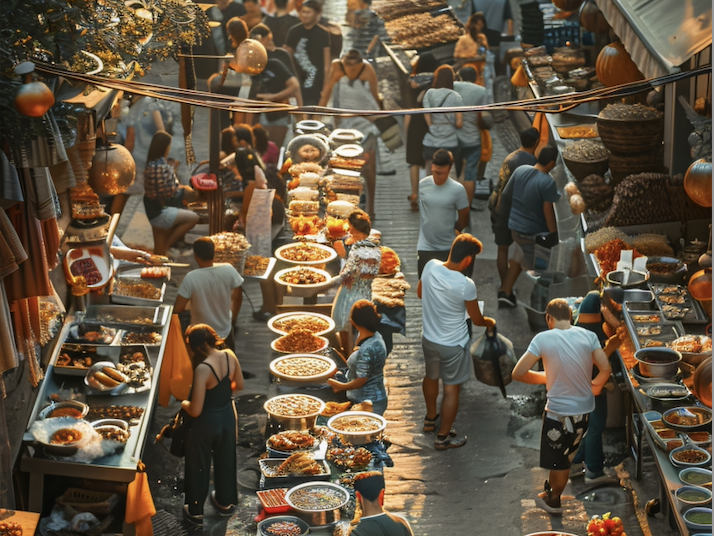Tourists are "ruining" mexican food (but it's amazing)
The heated debate surrounding tourist influence on authentic mexican cuisine has reached a boiling point in 2025, but the reality behind this cultural exchange is far more fascinating and positive than critics initially believed.
The "authenticity police" vs culinary evolution
Food purists have been vocal about tourists requesting modifications to traditional mexican dishes, claiming these adaptations dilute centuries-old recipes. However, what's actually happening on the ground tells a completely different story that's revolutionizing how we understand cultural cuisine evolution.
Mexican chefs and street vendors are discovering that tourist requests often lead to creative innovations that enhance rather than diminish their culinary traditions. The demand for milder salsas has inspired vendors to develop complex flavor profiles using different chile varieties, creating entirely new taste experiences.
Tourist dollars funding culinary education revolution
The economic impact of food tourism has enabled mexican culinary schools to expand their programs dramatically. Tourism revenue now directly funds scholarships for young mexicans to study traditional cooking techniques, ensuring these methods are preserved and passed to future generations.
According to the Mexican Tourism Board, food tourism contributed $2.8 billion to the economy in 2024, with 78% of that revenue reinvested in local culinary education and ingredient sourcing programs.
International fusion creating mexican culinary ambassadors
Restaurants catering to international visitors have become unexpected laboratories for culinary diplomacy. Mexican chefs are learning to present traditional dishes in ways that educate tourists about ingredients, cooking methods, and cultural significance.
At eatmex.mx, we've witnessed this educational approach transform casual diners into passionate advocates for authentic mexican cuisine, who then share their knowledge and appreciation in their home countries.
The accessibility revolution benefiting everyone
Tourist-friendly modifications have made mexican cuisine more accessible to people with dietary restrictions, allergies, and health conditions. This inclusivity movement has sparked innovations in plant-based mexican cooking, gluten-free options, and reduced-sodium preparations that benefit both visitors and locals.
Mexican restaurants now offer detailed ingredient lists, allergen information, and customization options that were previously unavailable, making dining safer and more enjoyable for everyone.
Cultural exchange strengthening mexican identity
Rather than weakening mexican food culture, tourist interaction has strengthened it by forcing locals to articulate what makes their cuisine special. Restaurant owners report increased pride in their heritage and more sophisticated understanding of their own culinary traditions.
This cultural reflection has led to a renaissance in regional mexican cooking, with lesser-known dishes gaining popularity as restaurants seek to offer unique experiences to curious travelers.
#MexicanFood #FoodTourism #CulturalExchange #AuthenticCuisine #MexicanCulture #GastronomyDebate #FoodEvolution #TravelFood #CulinaryDiplomacy #FoodInnovation
